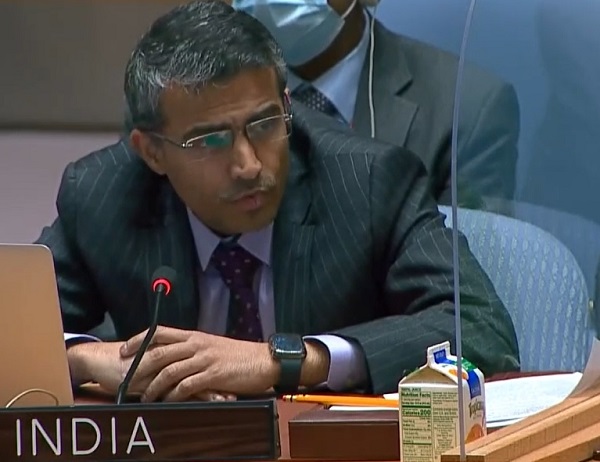
New York, (Asian independent) India has warned of the increasing likelihood of terrorists getting weapons of mass destruction (WMD) and urged the UN Security Council to make preventing it a “central priority”.
“Preventing terrorist groups from acquiring and using weapons of mass destruction must be a central priority and responsibility of this Council and the international community,” A. Amarnath, a counsellor in India’s Permanent Mission to the UN, said on Monday.
Various UN reports have shown that the “threat of terrorists acquiring WMDs is no longer in the theoretical realm”, he said at a Security Council briefing by a panel set up to monitor the problem.
“Procrastination cannot be an option anymore.”
He cited a recent finding of the team set up by the Council to investigate the Islamic State (IS) terror group, also known by the Arabic acronym Da’esh, that it had WMDs.
The report of the Investigative Team to Promote Accountability for Crimes Committed by Da’esh/IS (UNITAD) “on the possession and use of WMDs by Da’esh are deeply disturbing”, he said.
Amarnath spoke after a briefing given by the panel known as the 1540 Committee after the Council resolution that set it up.
The committee, set up in 2004, monitors compliance with the resolution that asked all nations to prevent “non-state actors” – terrorists – from getting access to nuclear, chemical or biological weapons.
Mexico’s Permanent Representative Juan Ramon de la Fuente Ramirez, who heads the committee, said that while countries “have made significant progress in the full implementation of the resolution, nevertheless, gaps remain”.
“The full and effective implementation of the resolution is a long term task.”
Amarnath said that there was a global consensus on preventing terrorists from acquiring WMDs.
India, which has “resolutely fought the battle against terrorism for many decades”, has introduced every year since 2002 a resolution in the General Assembly India, on “measures to prevent terrorists from acquiring weapons of mass destruction”, he said.
“The resolution is adopted without a vote reflecting the global consensus on this matter.”
Trina Saha, the acting political coordinator at the US Mission to the UN, said that “Resolution 1540 is one of the few established, authoritative international instruments” to address the WMD threat and the Committee is “a powerful multilateral tool to help prevent the most dangerous weapons from falling into the hands of non-state actors”.
Amarnath offered India’s assistance to countries to comply with the resolution.
“We support continuous and constant efforts towards full implementation of Resolution 1540, wherever possible, by offering to share our knowledge and technical expertise as part of the Committee’s assistance framework.”
India has organised several programmes for industry, academia, and other key stakeholders on implementing Resolution 1540, he said, adding that they covered export controls for the industry and intangible technology transfers.







